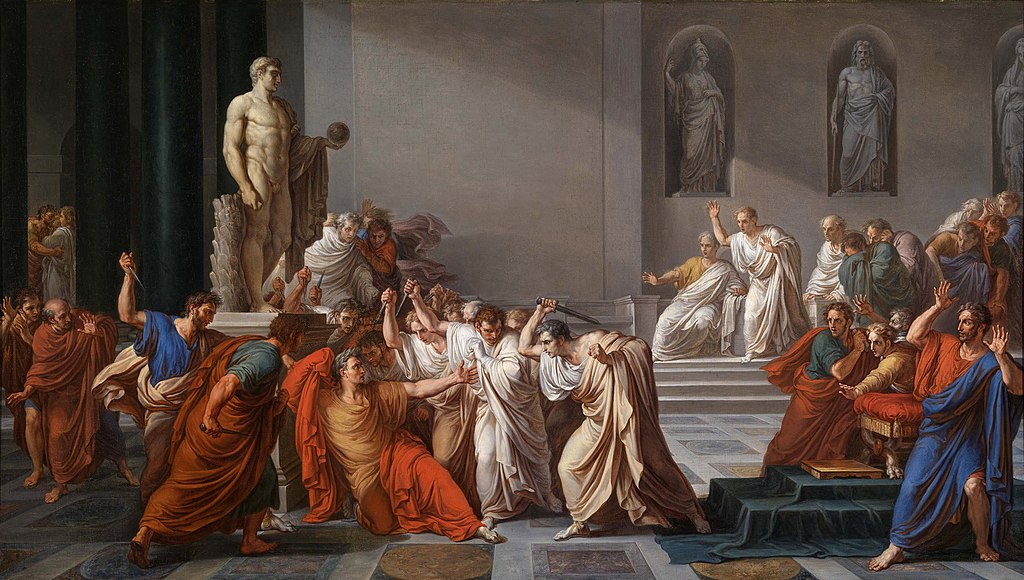Merely to note for posterity the proximate catalyst for this post, this past weekend, a guy was allegedly attacked during a demonstration by a group of a left-wing organization known as antifa (fun fact, nobody knows how this name is supposed to be pronounced). The details that made it to me are obscure. Initial police, media reports, and partisan scuttlebutt are relatively useless in ascertaining complete pictures, in my experience. Honestly, I don’t care enough to dig into and muse about the details of this particular event here; it’s the meta-conversation that’s more interesting to me (and will survive past Tuesday).
The vociferous refrain from folks that do not support antifa in this incident (i.e. most people) was some iteration of: “Regardless of the specific details of this incident, I think we can all agree that supporting violence to effect political goals and/or enforce ideas is bad.” (One commentator even had the temerity to refer to the violence as “nihilistic”. Harumph!) “Bad” is obviously a broad term, but the sentiment covered a number of the possible connotations (e.g. counter-productive, immoral). I don’t think I’m being unfair to say I think a lot of people would agree to this sentiment–I would literally bet money that a survey would show a majority of people would agree if asked. And really, it’s a testament to the progress our species has made at diminishing the popularity of violence–this, I think we can all agree, is a good notion.
But here’s the thing, I don’t think people actually believe that; they’re compartmentalizing. People are generally fine with violence being used, they just want it to be through The System.
The police and judicial system, military, and weapons are all means of using violence to enforce ideas. Unless you want a total abolition of all of these things, you’re okay with using violence to enforce ideas, etc. (If you are indeed a radical pacifist of this kind, then please disregard this article.)
If I, say, don’t pay my taxes, I get assessed a fine. If I don’t pay it, eventually, I can be held criminally liable. If I don’t turn myself in, armed men will be summoned by the government to have me put in jail. If I resit this to an extreme extent, I can be executed by the police or forcibly imprisoned. These are violent outcomes that can be enforced by violent means. Now, that is not to say that is the usual way that scenario plays out. But that’s game theory. The system is set up to be allowed to ultimately use violent force to enforce laws if it comes to it. Most people choose to capitulate before it hits that point, but that doesn’t change how the system is set up. The whole function of government is predicated on this right to enforce laws through the use of violence (should it escalate to that extreme). Supporting the government to any extent means you at least tacitly accept the right for the state to use violence.
The military is predicated on using violence to enforce the interests of the state. I feel as if that should not be a disputable statement. Boot camp trains you to shoot guns, not make persuasive arguments and resist nonviolently.
So, shall we abolish the state and military? Anarchists here will say, “Yes.” Let’s put a pin in it. For those saying “no”, I get that the objection is that the state and military should only use violence in particular circumstances subject to oversight. Certainly. And the system of oversight you side with probably resembles something like a liberal democracy (although it doesn’t have to, for the sake of argument). Fine. But this means that violence is still permissible, but only if it is subject to some system. And I’m not saying that’s a wrong opinion, but I hope I can get a concession on the point I’m making.
Now, you may object and say that any legitimate system can only use violence for self-defense of some kind (this would include anarchic systems as well), or to protect the rights of citizens. But deciding what constitutes a valid scenario for self-defense, and/or what constitutes rights that state or system can protect/enforce are political arguments. When does a state or system have a right to step in? Even if you think you have an answer for every possibility, those still constitute political or philosophical opinions. Even anarchic systems allow for violence to enforce objectives, even if it is not through a state monopoly.
The point isn’t whether or not violence is justifiable, that’s irrelevant; the point is that basically everybody supports some system being able to use violence under certain circumstances. I.e. violence is sometimes permissible, as long as it’s through The System.
Our view of what this system ought to be or what it ought to permit is a separate debate.
What we don’t want is violence outside this system. That’s what people find objectionable to groups like antifa (to the extent the group is actually violent; again, not my point here). Riots and assaults in the streets aren’t a part of the system’s approved violence.
The notion that violence is ineffective or bad per se is absurd. It may be counterproductive, dangerous, and yield unexpected consequences, etc., but it’s not ineffective relative to a lot of political action. If you vote for a US senator, your individual vote basically means fuck-all in the scheme of influencing national politics. If you shoot a US senator in the head, you can actually make a noticeable ripple in the US political process. (Please note, I am not saying that I endorse doing this by any means). The utilitarian objection will be that creating an environment where the political process is decided by assassination and not elections will lead to massive political instability and ultimately less desirable outcomes in the long run. The moral (deontological) objection will be that shooting people in the head is immoral.
For the deontological objection: if I genuinely believe the government is, say, on its way to establishing Nazi-style death camps (as some current discourse has intimated), or that our foreign policy is responsible for the deaths of millions of innocent civilians, hop on the trolley, because shooting a couple senators seems like it could be justified if I genuinely believed it would put a stop to genocide.(Again, for the love of God, I am not advocating this. This is a musing on ethics. Just can help but think some idiot’s going to dig this up and make my life difficult because they’re a moron….)
For the utilitarian debate: that’s fair, but in the absence of a good crystal ball, it’s pretty speculative. It’s basically impossible to conclusively argue the downstream consequences of any given action. What if the downstream outcomes were for the best, though? The American Revolution was a net good, no?
The fair arguments are, morally, where we stop the trolley, and practically, what the likely outcomes of an action might be. Those are all fine areas to argue with how we look at violence outside the system. Carry on with them. To argue something like, “I think the violent actions of group X will lead to bad outcomes” or “I think the violence of group Y is morally unjustifiable” is wholly fair.
But it’s absurd to say that there isn’t some kind of argument that violence outside the system cannot be used to effect political change people are aiming for.
I think the reflexive need to disavow violence outside the system is, for one: a meme. We grow up being told “violence is never the answer” it’s bullshit, given how few people are radical pacifists, but it gets repeated because we compartmentalize. Every school in the country that has a junior military program and/or a police officer also has a “zero tolerance for violence” policy. I also think it’s a shorthand for “violence should only be used as last resort, and we aren’t there yet.” But I also can’t help but think that some of it is a fear (or at least aversion to) Chaos. The System gives you a sense of order, predictability. The system can be controlled; it can be understood. Violence outside the system is seemingly unpredictable, and we’re less certain of how to control it. The objective truth of these feelings is irrelevant; the perception is truth.

